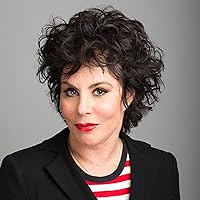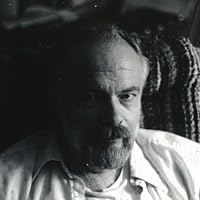Mental Hospital Quotes
Quotes tagged as "mental-hospital"
Showing 1-24 of 24

“Here I want to stress that perception of losing one’s mind is based on culturally derived and socially ingrained stereotypes as to the significance of symptoms such as hearing voices, losing temporal and spatial orientation, and sensing that one is being followed, and that many of the most spectacular and convincing of these symptoms in some instances psychiatrically signify merely a temporary emotional upset in a stressful situation, however terrifying to the person at the time. Similarly, the anxiety consequent upon this perception of oneself, and the strategies devised to reduce this anxiety, are not a product of abnormal psychology, but would be exhibited by any person socialized into our culture who came to conceive of himself as someone losing his mind.”
― Asylums: Essays on the Social Situation of Mental Patients and Other Inmates
― Asylums: Essays on the Social Situation of Mental Patients and Other Inmates

“It's an unfortunate word, 'depression', because the illness has nothing to do with feeling sad, sadness is on the human palette. Depression is a whole other beast. It's when your old personality has left town and been replaced by a block of cement with black tar oozing through your veins and mind. This is when you can't decide whether to get a manicure or jump off a cliff. It's all the same. When I was institutionalised I sat on a chair unable to move for three months, frozen in fear. To take a shower was inconceivable. What made it tolerable was while I was inside, I found my tribe - my people. They understood and unlike those who don't suffer, never get bored of you asking if it will ever go away? They can talk medication all hours, day and night; heaven to my ears.”
―
―
“He said that I have to remember that even though I've changed a lot in here, I'm going back to a world that hasn't changed”
― Suicide Notes
― Suicide Notes

“Jail was preferable. There they only limited you physically. In a mental ward they tampered with your soul and worldview and mind.”
―
―

“I have schizophrenia. I am not schizophrenia. I am not my mental illness. My illness is a part of me.”
― Jonathan Harnisch: An Alibiography
― Jonathan Harnisch: An Alibiography

“My mother's mouth drops. 'Emmy...don't say those things Emmy. Remember, we don't talk about those things.'
'Yes Mom. I remember. That's why I'm here, looking like this.'
An orderly knocks on the door and announces that visiting time is over.
My mother and I look at each other awkwardly, and hug.
'I love you,' she says.
'I love you too, Mom.'
'You aren't telling them too much are you?' she asks, afraid.
I sign. 'No Mommy, I'm not.'
She's visibly relieved. She leaves the room.
The orderley comes back and escorts me back into the main room.
I just sit and laugh to myself."
(after Emmy's suicide attempt) ~ The Finer Points of Becoming Machine”
―
'Yes Mom. I remember. That's why I'm here, looking like this.'
An orderly knocks on the door and announces that visiting time is over.
My mother and I look at each other awkwardly, and hug.
'I love you,' she says.
'I love you too, Mom.'
'You aren't telling them too much are you?' she asks, afraid.
I sign. 'No Mommy, I'm not.'
She's visibly relieved. She leaves the room.
The orderley comes back and escorts me back into the main room.
I just sit and laugh to myself."
(after Emmy's suicide attempt) ~ The Finer Points of Becoming Machine”
―

“One either cares what others think about him, or cares what others think he thinks about them. If you want to find someone who doesn't care in the slightest what anyone thinks, try a lunatic asylum.”
― Healology
― Healology

“Right there in that room, listening to the tape Laura gave me, I decided that I wanted something more than what I’d allowed myself to become. Listening to the voices and piano notes fade in and out, I decided that I wanted to be happy. If I had to fight for things in life, I wanted to fight for something bigger than the right to eat with a fork. I wanted to love and be loved and feel alive. I had no idea how to find my way, but listening to that music wash over me, I felt, for the first time, that the struggle I faced would be worth it.”
― Giving Up the Ghost: A Story About Friendship, 80s Rock, a Lost Scrap of Paper, and What It Means to Be Haunted
― Giving Up the Ghost: A Story About Friendship, 80s Rock, a Lost Scrap of Paper, and What It Means to Be Haunted
“His first thought – what felt like his first thought ever, it formed so slowly in his brain – was that she looked like a doll. Just like a doll. Her eyes were large and bright and feline; her hair
was chestnut, brushed to a hardwood shine, parted sharply and flowing to her thighs; her lips were cupid’s-bow-cute; her head was tilted to one side on a long, long neck. She had skin that had never seen sunlight, and wore no expression at all.
He noticed her. And she noticed, and kept on noticing, him.
Stanley looked down for a third and longer time. It wasn’t polite to stare. Not at girls. Or anyone. But especially not girls. Not even girls who looked like perfect porcelain dolls.”
― Release
was chestnut, brushed to a hardwood shine, parted sharply and flowing to her thighs; her lips were cupid’s-bow-cute; her head was tilted to one side on a long, long neck. She had skin that had never seen sunlight, and wore no expression at all.
He noticed her. And she noticed, and kept on noticing, him.
Stanley looked down for a third and longer time. It wasn’t polite to stare. Not at girls. Or anyone. But especially not girls. Not even girls who looked like perfect porcelain dolls.”
― Release

“On the ward there was hurt and pain so big and so deep that speech could not express it. I had been interested in philosophy, and suddenly philosophy came alive for me, for here the basic questions of human existence were not abstractions: they were embodied in human suffering”
― Unusual Associates: A Festschrift for Frank Barron
― Unusual Associates: A Festschrift for Frank Barron

“Eventually I had gotten it together enough to call her. I did so partly to let her know where I was and partly to almost brag about where I was. Whenever I’d get morose, sulky, or stuck somewhere between crabby and suicidal, she was quick to say something disarming or indirectly tell me things weren’t that bad. Laura wasn’t exactly dismissive of my feelings, but I often left our conversations feeling like she didn’t quite get how harsh things felt for me—or at least that she wasn’t willing to acknowledge it. This frustrated and upset me. I spent so much time trying to hide the depths of my feelings and the clusterfuckedness of my life from everyone, except her. The one person I was honest with was often telling me that I was being too dramatic, or overdramatic, or overthinking things, or would I just please change the subject. It wasn’t like she didn’t believe me—it was more like she questioned why I let things bother me so much. In a small way, ending up in the mental ward was a strange kind of validation for me. Being in Timken Mercy proved that when I was insisting that things were terrible, and she kept insisting that they weren’t, they were, in fact, kind of terrible.”
― Giving Up the Ghost: A Story About Friendship, 80s Rock, a Lost Scrap of Paper, and What It Means to Be Haunted
― Giving Up the Ghost: A Story About Friendship, 80s Rock, a Lost Scrap of Paper, and What It Means to Be Haunted

“He'll have to do without me, Jamie thought, not looking back. And then clearly, as if he'd been told, he knew Grenville /could/ do without him. There was somewhere else he had to go now, somewhere else he had to be.”
― Hawkes Harbor
― Hawkes Harbor

“The old joke is that psychiatrists are doctors who can't stand the sight of blood. Maybe they can't stand it, but if they work where I work, they damn well better get used to it.
At least surgeons and prizefighters get to wear gloves”
― Bash
At least surgeons and prizefighters get to wear gloves”
― Bash

“Randolph Maddix, a schizophrenic who lived at a private home for the mentally ill in Brooklyn, was often left alone to suffer seizures, his body crumpling to the floor of his squalid room. The home, Seaport Manor, is responsible for 325 starkly ill people, yet many of its workers could barely qualify for fast-food jobs. So it was no surprise that Mr. Maddix, 51, was dead for more than 12 hours before an aide finally checked on him. His back, curled and stiff with rigor mortis, had to be broken to fit him into a body bag.” THE NEW YORK TIMES April 28, 2002”
― The Devil in Silver
― The Devil in Silver

“Concentrated populations of the deranged assume certain powers. It has an unsettling effect. You spend some time in a nuthouse and you'll see.”
― The Passenger
― The Passenger

“I was shocked and terrified to hear Dr. Summer say I had what was formerly known as multiple personality disorder. Is that like Sybil? Am I like the woman in The Three Faces of Eve? My head began to spin. What do I have inside of me? Is there a crazy person in there? What am I? I felt like a freak. I was afraid to have anyone know. I have a mental illness. People make fun of people like me. Upon hearing my diagnosis, I stopped thinking of myself as smart, creative, or clever. Even though Dr. Summer had worked hard to help me understand that I had developed an amazingly adaptive survival technique, I no longer thought of it that way at all.
I was overwhelmed by fear and shame. The words multiple personality disorder echoed in my mind. I thought of all the ways people with multiple personalities were ridiculed and marginalized: They're locked away in mental institutions. They are really sick. I'm not going to be the subject of people's jokes. I am a lawyer. I work at the U.S. Department of Justice. The more I thought about it, the deeper my despair grew.”
― The Sum of My Parts: A Survivor's Story of Dissociative Identity Disorder
I was overwhelmed by fear and shame. The words multiple personality disorder echoed in my mind. I thought of all the ways people with multiple personalities were ridiculed and marginalized: They're locked away in mental institutions. They are really sick. I'm not going to be the subject of people's jokes. I am a lawyer. I work at the U.S. Department of Justice. The more I thought about it, the deeper my despair grew.”
― The Sum of My Parts: A Survivor's Story of Dissociative Identity Disorder

“He understood that for all intents and purposes he was now under arrest for his suicide attempt.”
― VALIS
― VALIS
“I've always drawn cartoons, that's all I can do. If I didn't draw, I would probably be in a mental hospital.”
― R. Crumb: Conversations by R. Crumb
― R. Crumb: Conversations by R. Crumb
“Ogarnęło go poczucie beznadziejności - beznadziejności oswojonej i ciepłej, przez co jeszcze bardziej beznadziejnej. Zatrzymał się przy oknie. Ścieżka ginęła w jesiennym dywanie opadłych liści i w mroku: była tak blisko i zarazem tak daleko, jak Paryż, jak Byt, jak Wolność. Wyrzekł się tych prostych życiowych ścieżek częściowo z własnej woli, częściowo wbrew niej. Natura była abstraktem, snem. Rzeczywistość natomiast zamykała się tutaj, między korytarzykiem, pielęgniarzem i salą.”
― Adam Kłakocki i jego cienie
― Adam Kłakocki i jego cienie

“For now, you will be confined to your room until you earn privileges.'
'Privileges?'
He nodded. 'Once we start working together and you show a willingness to cooperate, we can add privileges to your daily program. Outside time, personal items, television, phone--those kinds of things.'
He checked his watch while I stared at him in horror. Privileges? As in out-frickin'-side time? I was in prison!”
― Between the Lives
'Privileges?'
He nodded. 'Once we start working together and you show a willingness to cooperate, we can add privileges to your daily program. Outside time, personal items, television, phone--those kinds of things.'
He checked his watch while I stared at him in horror. Privileges? As in out-frickin'-side time? I was in prison!”
― Between the Lives
“Emma cites the structure of the [Eating Disorder] Unit as being important to her decision to disengage from her illness, and the fact that she felt safe in it, and cared for.
'It was the first time I'd been in an environment where I felt comfortabe with all the people around me. I felt "I can be here and I can talk to anybody" and that was something that had been missing from my life'.”
― To Die For
'It was the first time I'd been in an environment where I felt comfortabe with all the people around me. I felt "I can be here and I can talk to anybody" and that was something that had been missing from my life'.”
― To Die For
All Quotes
|
My Quotes
|
Add A Quote
Browse By Tag
- Love Quotes 97k
- Life Quotes 75.5k
- Inspirational Quotes 72.5k
- Humor Quotes 43.5k
- Philosophy Quotes 29.5k
- Inspirational Quotes Quotes 27k
- God Quotes 26k
- Truth Quotes 23.5k
- Wisdom Quotes 23.5k
- Romance Quotes 23k
- Poetry Quotes 22k
- Death Quotes 20k
- Happiness Quotes 18.5k
- Life Lessons Quotes 18.5k
- Hope Quotes 18k
- Faith Quotes 18k
- Quotes Quotes 16.5k
- Inspiration Quotes 16.5k
- Spirituality Quotes 15k
- Religion Quotes 15k
- Motivational Quotes 15k
- Writing Quotes 14.5k
- Relationships Quotes 14.5k
- Life Quotes Quotes 14k
- Love Quotes Quotes 13.5k
- Success Quotes 13.5k
- Time Quotes 12.5k
- Motivation Quotes 12k
- Science Quotes 11.5k
- Knowledge Quotes 11k


